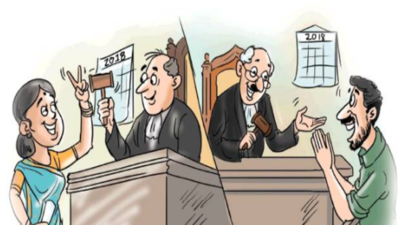The Punjab & Haryana High Court recently urged authorities to frame guidelines to regulate spas and massage centers to curb the rise in cases under the Immoral Traffic (Prevention) Act in Chandigarh [Nagaraj T v State of UT Chandigarh].
A bench of Justice Mahabir Singh Sindhu passed the order after noting the legal vacuum in this regard, with no rules, regulations or guidelines to govern the operation of such Spas and massage centres.
The single-judge further noted that there are currently 71 spa centers operating within the Union Territory (UT) of Chandigarh and since 2018, a total of 16 cases have been filed under the Immoral Traffic (Prevention) Act with 5 cases occurring in the year 2023.
“Keeping in view the fact that cases under the Act are growing in UT Chandigarh; therefore, in order to curb this menace, there would be no harm if the authorities may think about the similar guidelines for the city beautiful,” the Court stated.
The Court also highlighted that the Delhi government has framed guidelines to regulate the functioning of spa/ massage centres.
“It is pertinent to mention here that Government of National Capital Territory of Delhi, Home Department, has framed guidelines for operation of spa/ massage centres in Delhi, circulated vide memo dated August 18, 2021 for operating spa centres,” the order noted.
The Court made the observations while hearing the anticipatory bail plea filed by one Nagaraj accused of running a brother under the guise of a spa by the name of ‘Ganga spa’.
Nagaraj and other co-accused were charged under various section of the Immoral Traffic (Prevention) Act and Section 370 (trafficking for sexual exploitation) and 120B (criminal conspiracy) of the Indian Penal Code.
The First Information Report (FIR) said that during a police raid, individuals were discovered in inappropriate and unclothed state inside the spa.
It was alleged that the rescued girls mentioned that they were brought from Jalandhar by the petitioner-accused for offering body massage but were later coerced into prostitution.
The counsel for petitioner argued that the search was illegal since no respectable inhabitant of the locality was joined during the search.
The Court, however, refused to buy this argument.
“It is liable to be rejected in view of the fact that women helpline team was associated at the time of search. Therefore, there is sufficient compliance of the provisions of Section 15 of the Act by the Special Police Officer,” the Court said.
The Court, therefore, refused to grant anticipatory bail to applicant noting that the allegations against him are grave.
“Petitioner’s custodial interrogation would be necessary, to find out the true facts and modus operandi for all these activities,” the Court added.
Advocate Shakti Mehta represented petitioner.
Advocate AM Punchh represented State.
Source Link




